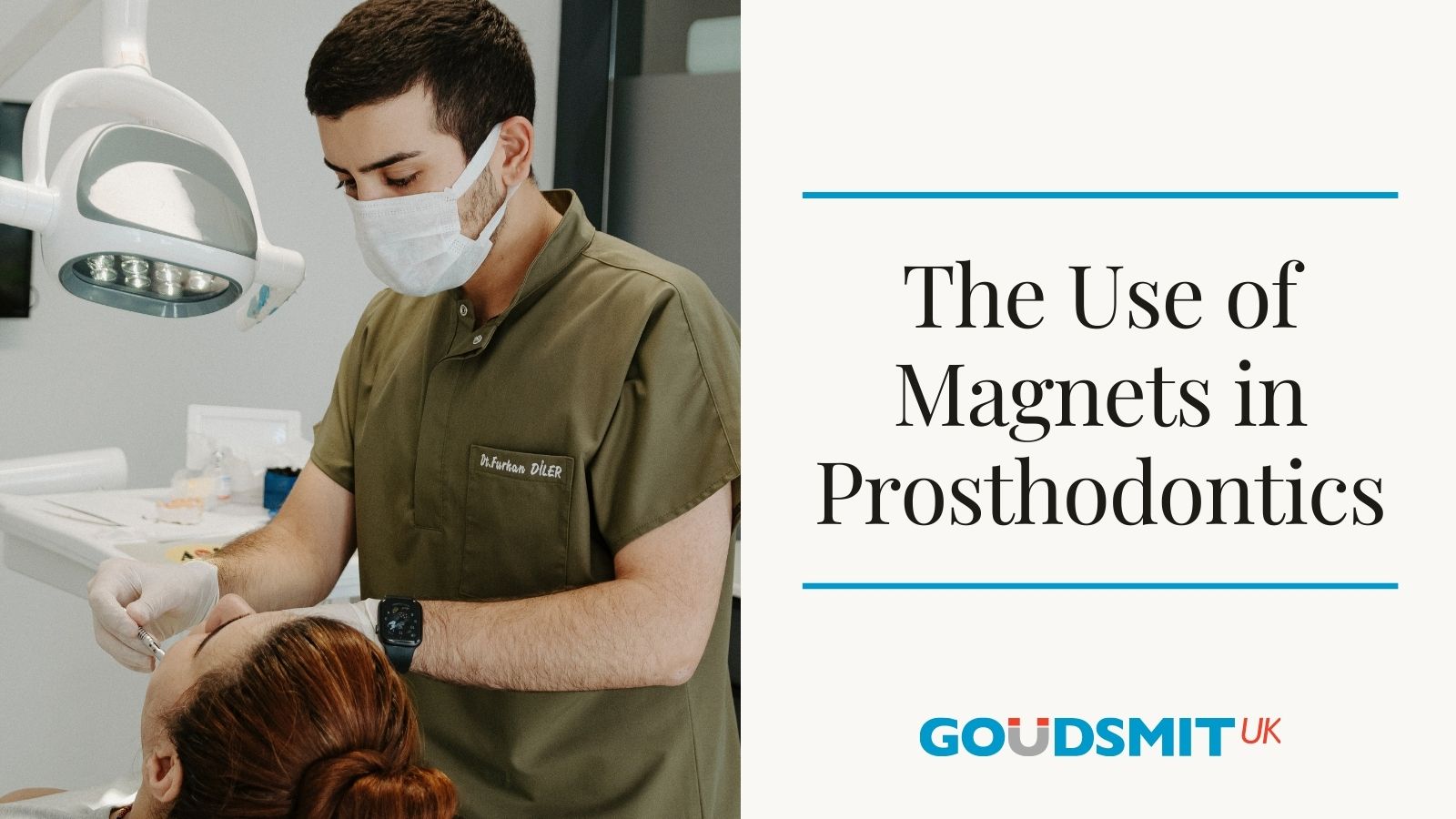Magnets have been highly utilised in the prosthodontics field for several years, particularly in the design of corrective implant-supported overdentures and maxillofacial prosthesis. Initially having experimented with aluminium-nickel-cobalt (Alnico) magnets, prosthodontic engineers limited their success due to corrosion which caused saliva. However, in recent years they’ve found success with rare earth magnets like samarium-cobalt and neodymium, which are stronger and more resistant to corrosive elements when coated.
The difference between dentures and overdentures
Traditionally, standard dentures were fitted with a kind of cement or set in place with removable adhesive. While overdentures are a form of dental implant that shapes a gum-supported base onto which a denture can be placed.
Overdentures require dentists to surgically implant anchors into the jaw. Then, using a ball and socket arrangement a prosthetic denture is attached to the implant. This method prevents the dentures from shifting or popping out of place.
Incorporating the use of rare earth magnets, will lock the dentures securely into place when they encounter the implants. To facilitate this, a steel plate or some type of ferrous metal may be attached to the implant or remaining teeth.
Maxillofacial prosthetics
Maxillofacial prosthetics is a specialist area of prosthodontics for those recovering from birth defects or disabilities due to trauma or illness. Normally, this form of prosthetics replaces missing bone or tissue in the facial to restore certain oral functions like swallowing, chewing, and the ability to speak.
Magnets are favoured in mechanical retention methods instead of:
- Retaining wire bands
- Springs and clamps
- Stainless steel studs
- Pins
- Tubes
- Hinges
Magnets may hold portions of an implant together, or, like with overdentures, they may attach to a permanent implant inside the mouth.
Why Are Magnetic Prosthodontics Important?
Overdentures and prosthetics give people a better quality of life. Specifically, the ones that use magnets. Magnetic prosthodontics slow the facial deterioration that that may come with traditional dentures or maxillofacial prosthetics, such as:
- Bone loss
- Jaw collapse
- premature aging
Additionally, they provide support and integrate with the gums and bone. Therefore, improving a person’s appearance, but more importantly, their frame of mind and overall mental health.
Goudsmit UK
High performance magnets from Goudsmit UK are used daily in hundreds of medical applications worldwide. All magnetic products manufactured by Goudsmit UK also meet or exceed ISO 9001 and AS 9120 quality standards.
Contact us today for more information at info@goudsmit.co.uk or on +44 (0) 2890 271 001.
For more information visit our webpage or download our products and services brochure here.







